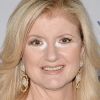20 Public Health Books That Shape Expert Understanding
Curated by Bill Gates, Prashant Bhushan, and Siddhartha Mukherjee, these Public Health Books offer insight and impact







What if I told you that the trajectory of global health hinges on the insights contained in a handful of pivotal books? Public health, a field often hidden behind the scenes, shapes everything from pandemic responses to policies combating chronic diseases. With ongoing challenges like climate change, health inequities, and emerging infections, understanding these forces has never been more urgent.
Leaders like Bill Gates, whose philanthropy has reshaped global health initiatives, and scholars like Prashant Bhushan, a public interest lawyer, have turned to certain books for understanding the complex interplay of policy, science, and society. Pulitzer winner Siddhartha Mukherjee praises works that illuminate the systemic flaws and human stories behind public health crises, underscoring why these readings matter.
While these expert-curated books provide proven frameworks and deep analyses, if you want content tailored to your experience level, interests in epidemiology, health policy, or community health, consider creating a personalized Public Health book that builds on these insights and suits your unique goals.
Recommended by Prashant Bhushan
Public interest lawyer and activist
“Absolute must watch: Public interest lawyer and children's health advocate Robert Kennedy Jr talks about his new book: "The Real Dr Fauci: Bill Gates, big Pharma & the global war on public health"; if you value your health and want to understand what has happened” (from X)
by Robert F. Kennedy Jr.··You?
by Robert F. Kennedy Jr.··You?
Robert F. Kennedy Jr.'s deep legal and environmental advocacy experience shapes this investigation into the intersection of public health and power. The book scrutinizes Dr. Anthony Fauci's role in shaping health policy, revealing financial and political influences behind major health decisions. You gain insight into how pharmaceutical funding and institutional control can affect research outcomes, with detailed examinations of AIDS treatments and vaccine industry partnerships. This book challenges prevailing narratives, making it suited for readers willing to explore controversial perspectives on public health governance and media influence.
Recommended by Biodiversity And Conservation
“A comprehensive review...Planetary Health is highly interdisciplinary, predicated as it is on the basis that human health and the health of the planet are inextricably linked. I would recommend biodiversity and conservation scientists to read this book because it shows how our understanding of the complexities and interaction of the natural world have direct relevance to managing many existing and emerging human diseases….The editors have done an excellent job in drawing together some deep and critical thinkers about planetary health, and so this will be a useful introductory textbook in undergraduate classes in ecology or environmental sciences as well as the health sciences. I would also like to see Planetary Health used as a primer for those from industry or policy involved in the challenges of how we protect our planet to ensure that it meets the health aspirations of future generations.”
by Samuel Myers, Howard Frumkin··You?
by Samuel Myers, Howard Frumkin··You?
The expertise behind this book comes from Howard Frumkin, a leading figure in environmental and occupational health with decades at institutions like Emory University and the CDC. You’ll find a deep dive into how Earth's natural systems—air, water, biodiversity—are intimately tied to human health, with chapters covering issues from infectious diseases to mental health impacts driven by environmental change. The book doesn’t just diagnose problems; it explores practical strategies such as urban design improvements and clean energy investments. If you’re involved in public health, environmental science, or policy, this book equips you with a clear understanding of the emerging planetary health paradigm and its implications for your work.
by TailoredRead AI·
by TailoredRead AI·
This tailored book delves into public health through a personalized lens, focusing on your unique background and objectives. It explores the multifaceted challenges of public health, from epidemiology to community interventions, while examining how tailored approaches can address complex real-world problems effectively. By matching your interests and goals, it navigates foundational concepts and specialized topics, fostering a deeper understanding of health promotion, disease prevention, and policy impact. The book reveals how individual contexts influence public health outcomes and highlights methods to design interventions that resonate with specific populations, empowering you to engage with the field in a meaningful, informed way.
Recommended by Libby Watson
Public health journalist and advocate
“@Metathea11 love that book!” (from X)
by Elisabeth Rosenthal··You?
by Elisabeth Rosenthal··You?
After two decades reporting on health and medicine, Dr. Elisabeth Rosenthal developed a sharp critique of the American healthcare system that goes beyond blaming politicians or providers. You’ll learn how hospitals, insurers, and pharmaceutical companies have turned care into a profit-driven industry, often at the expense of patients. Rosenthal breaks down complex billing practices, exposes conflicts of interest, and reveals how market forces have warped the system's original mission. If you're navigating healthcare costs or interested in systemic reform, this book offers both eye-opening insights and practical ways to advocate for yourself and others.
Recommended by Agnes Binagwaho
Vice Chancellor at University of Global Health Equity
“A great book that learns from our great thinkers in the Global South. "Epidemic Illusions" decolonizes global public health Important work at a time when we fight a pandemic, to remember the global inequities built & perpetuated by colonialism which is still very much alive” (from X)
by Eugene T Richardson, Paul Farmer··You?
by Eugene T Richardson, Paul Farmer··You?
Eugene T. Richardson’s dual expertise as a physician and anthropologist informs a critical examination of how public health practices often reinforce global inequities rooted in colonial history. You’ll encounter a rigorous unpacking of epidemiological methods, such as outbreak modeling and causal inference, through the lens of postcolonial theory and medical anthropology. Chapters detail Richardson’s frontline experience with epidemics like Ebola in West Africa and SARS-CoV-2 in the United States, illustrating how these practices perpetuate systemic disparities. This book challenges you to rethink standard public health narratives, making it essential for those engaged in global health policy and social justice.
Recommended by Bill Gates
Co-Founder & Former CEO of Microsoft
by William H. Foege··You?
by William H. Foege··You?
William H. Foege's decades of experience as director of the CDC and chief of the Smallpox Eradication Program shaped this compelling narrative of one of public health’s greatest achievements. You’ll gain insight into the innovative vaccination strategies that halted smallpox in its tracks, particularly the targeted campaign in India that became a blueprint for disease eradication. The book weaves personal anecdotes with global health lessons, offering a vivid look at the challenges and successes encountered on the front lines in impoverished regions. If you want to understand how coordinated international efforts can overcome devastating diseases, this book delivers a grounded, honest perspective.
by TailoredRead AI·
This tailored book explores how to create impactful short-term public health plans that efficiently target urgent community needs. It examines key interventions that can be implemented rapidly to improve health outcomes while aligning with your background and goals. By focusing on your specific interests, it synthesizes expert knowledge into a clear, actionable pathway, highlighting evidence-based approaches that adapt to local contexts and resource constraints. The book reveals how to prioritize interventions, measure progress, and address challenges in public health action plans. Its personalized content ensures you engage deeply with material relevant to your skill level and objectives, fostering a deeper understanding of effective public health response in compressed timeframes.
Recommended by Elizabeth Stuart
Professor, Johns Hopkins Bloomberg School of Public Health
“Much of epidemiology is about estimating causal effects: how risk factors or exposures relate to disease, or the effects of interventions or other factors on health outcomes. This introductory text by Westreich introduces students to the basics of epidemiology through this lens of intervention and impact. Its focus on how to articulate clear research questions, and design rigorous studies to answer them, will be particularly useful to students looking to make a difference in the public's health.”
by Daniel Westreich··You?
by Daniel Westreich··You?
While working as an epidemiology professor at UNC, Daniel Westreich developed this textbook to address a notable gap: teaching epidemiology through the lens of causal inference. You’ll learn how to frame precise research questions and design studies using concepts like potential outcomes and counterfactuals, which are central to understanding disease risk and intervention effects. The book covers key study designs—randomized trials, cohort, and case-control studies—while emphasizing internal and external validity. If you’re diving into epidemiology or public health, this book offers a focused foundation on causal thinking, though it’s best suited for those comfortable with rigorous scientific methods rather than casual learners.
Recommended by Science
“An easily approachable yet factually rich narrative. Oshinsky provides a very readable and enlightening history that also can be appreciated as good storytelling.”
by David M. Oshinsky··You?
by David M. Oshinsky··You?
David M. Oshinsky, a respected historian at the University of Texas at Austin, explores the intense American fight against polio in the mid-20th century. You’ll gain a nuanced understanding of the scientific race between Jonas Salk and Albert Sabin, and how public fear shaped national health policies and societal behaviors. The book details the pivotal role of the National Foundation for Infantile Paralysis in funding research and transforming public engagement with disease. If you’re interested in the intersection of medical innovation, public health infrastructure, and cultural response, this narrative offers a richly detailed portrait of America’s complex relationship with one of its most feared diseases.
Recommended by Bill Gates
Co-Founder & Former CEO of Microsoft
by Paul Farmer·You?
Paul Farmer challenges the conventional wisdom that infectious diseases affect all populations equally by highlighting how poverty shapes vulnerability to illnesses like AIDS, tuberculosis, and malaria. Drawing on over fifteen years of fieldwork as a physician-anthropologist in Haiti and Peru, Farmer reveals the social and economic forces behind disease distribution, moving beyond simplistic explanations like patient noncompliance. You’ll gain a nuanced understanding of how global and local inequalities perpetuate health disparities and what committed healthcare workers can do to address them. This book suits anyone seeking a critical perspective on epidemiology and public health policy, especially those interested in social determinants of health.
by William G. Weissert, Carol S. Weissert··You?
by William G. Weissert, Carol S. Weissert··You?
The authoritative expertise behind this book shines through the detailed examination of how government and private sectors shape health policy in the United States. William and Carol Weissert leverage their academic backgrounds in political science and public health to dissect the complexities of health policy shifts from the Obama to Trump administrations, including impacts on the Affordable Care Act. You gain insights into the roles of party polarization, social media influence, and Supreme Court decisions, with chapters dedicated to topics like Medicare payment reforms and insurance industry regulations. This book suits anyone seeking a nuanced understanding of modern American health policy, though those looking for broad public health fundamentals might find it narrowly focused on policy politics.
Recommended by Alfons López Tena Fbpe
Jurist and journalist with international outlets
“.@PeterHotez's book: Advances in biomedicine must be accompanied by concerted action in non-medical drivers of deadly outbreaks—war, political instability, human migration, poverty, urbanization, anti-science and nationalist sentiment, climate change” (from X)
by Peter J. Hotez··You?
Drawing from his extensive background as a pediatrician and vaccinologist, Peter J. Hotez explores the intertwined challenges of infectious diseases, vaccine diplomacy, and rising anti-science sentiment. You encounter detailed case studies ranging from tropical diseases to COVID-19, alongside firsthand accounts of his diplomatic efforts bridging geopolitical divides. The book equips you with a nuanced understanding of how war, climate change, and political instability fuel epidemics and why global cooperation on vaccines is crucial. It's particularly suited if you’re keen on the intersection of science, policy, and public health diplomacy.
Recommended by Arianna Huffington
Co-Founder of The Huffington Post
“In her brilliant and moving new book “The Desperate Hours,” author and journalist Marie Brenner shares how healthcare workers came together in their devotion to duty, their families, each other, and the city they love. A real page-turner!” (from X)
by Marie Brenner··You?
Marie Brenner, with her extensive background as an award-winning Vanity Fair writer and investigative journalist, offers a gripping narrative rooted in unprecedented access to New York-Presbyterian hospitals during the spring 2020 Covid crisis. You gain a detailed understanding of how frontline healthcare workers navigated overwhelming challenges, from makeshift clinics to secure ICU units, showcasing resilience under pressure. The book reveals intimate portraits of medical teams’ devotion beyond medicine—balancing duty with personal sacrifice. If you want an inside view of pandemic response and healthcare dynamics during a crisis, this book delivers a vivid, well-researched account that captures both the human and systemic aspects.
by george rosen··You?
by george rosen··You?
Drawing from his extensive expertise in medical history, George Rosen traces the evolution of public health through three major eras: the pre-capitalist, revolutionary, and modern periods. You’ll gain a deep understanding of how social complexities and capitalist development shaped public health policies and practices over time. Chapters detail the pluralization of health actions and the societal factors influencing health systems. This book suits those interested in the historical underpinnings of public health infrastructure and policy development rather than practical health interventions.
Recommended by Donald Henderson
The Lancet contributor and public health authority
“In Eradication, noted medical historian Nancy Leys Stepan objectively explores the origin, development of, and controversy surrounding eradication programmes during the past century—warts and all . . . . This book should be required reading for all who are concerned with global health development; Stepan offers a uniquely knowledgeable insight into the evolution and controversies intrinsic to the important idea of eradication and its contributions to world health.”
by Nancy Leys Stepan··You?
by Nancy Leys Stepan··You?
Drawing from her expertise as a historian at Columbia University, Nancy Leys Stepan offers a detailed account of disease eradication campaigns that have shaped public health efforts over the past century. You gain insight into the complexities behind ambitious programs like those for smallpox, malaria, and polio, understanding not only their successes but also the controversies and debates that surround such large-scale interventions. The book digs into the life of Dr. Fred Lowe Soper, a pivotal figure in eradication efforts, and explores the tension and possible complementarity between eradication and primary health care approaches. If you're interested in the intersection of history, policy, and global health challenges, this book offers a sober, well-researched perspective without glossing over the difficulties involved.
Recommended by Charu Pragya
Lawyer and National Media Panelist
“Please join us for a candid discussion with Author @PriyamGM on her book about India’s fight against Covid19 as we talk about policies, leadership, technology & Atmanirbhar Bharat.” (from X)
by Priyam Gandhi Mody·You?
by Priyam Gandhi Mody·You?
Priyam Gandhi Mody’s background in public policy and administration shines through in this detailed account of India’s COVID-19 response, which challenges widespread skepticism about the country’s capacity to handle the crisis. You’ll gain insight into how leadership decisions, scientific guidance, and resource management combined to create one of the world’s most effective pandemic responses, with chapters outlining vaccine development, infrastructure mobilization, and international aid efforts. This book is particularly useful if you want to understand the intersection of governance and public health during a global emergency, especially in resource-constrained settings. It’s less about medical details and more about strategy and leadership in public health crises.
Recommended by Johanna Wagstaffe
Meteorologist and geophysics expert
“Fascinating read— connecting history (and one of my favourite books Ghost Map) to tracing & tracking Covid-19. Plus tie-in to Dr. Bonnie Henry’s book that I have just started Soap and Water & Common Sense.” (from X)
by Dr. Bonnie Henry··You?
When Dr. Bonnie Henry, a seasoned epidemiologist with decades of frontline experience from Ebola to COVID-19, wrote this book, she aimed to demystify how microbes impact our daily lives. You’ll learn not just about viruses and bacteria but also practical habits rooted in science, like her three core rules: wash your hands, cover your mouth when coughing, and stay home when sick. Chapters such as "Microbes Inc." take you inside the unseen world, offering clear explanations of how germs spread and how to protect yourself effectively. This book suits anyone hungry for grounded, no-frills insight into infectious diseases and personal health safety.
by Dr. Leana Wen··You?
by Dr. Leana Wen··You?
What started as a personal journey for Dr. Leana Wen became a revealing exploration of public health's unseen impact on daily life. Drawing from her experience as an emergency physician and Baltimore’s health commissioner, Wen details how public health initiatives address issues like opioid addiction and pandemic response. You learn not just about medical facts but about innovative approaches such as treating gun violence as a contagious disease and confronting racism as a health threat. This book suits anyone interested in public health’s broader social context, especially those curious how policy and medicine intersect to save lives.
by Frances Dunn Butterfoss··You?
by Frances Dunn Butterfoss··You?
Frances Dunn Butterfoss's extensive experience in behavioral research and community health led her to craft this thorough guide on developing and maintaining coalitions that bolster public health. Through detailed chapters, you learn about coalition frameworks, leadership cultivation, and strategic planning, including practical tools like communication methods and media advocacy. The book offers concrete examples from real coalition work, making it a solid resource for those involved in collaborative health initiatives. If you're aiming to build lasting partnerships within communities or improve public health outcomes through collective action, this book offers a clear, research-informed roadmap.
Recommended by Max Bazerman
Harvard professor, public leadership expert
“Roberto and Kawachi have put together a collection of insights that health policy professionals will need to understand to create the largest impacts moving forward.”
by Ichiro Kawachi, Christina A. Roberto··You?
by Ichiro Kawachi, Christina A. Roberto··You?
Ichiro Kawachi's extensive experience in social epidemiology at Harvard shapes this nuanced exploration of how behavioral economics can address persistent public health challenges. Together with Christina A. Roberto, he delves into how subtle shifts in decision-making environments influence behaviors like diet, smoking, and alcohol use. You’ll find clear explanations of key behavioral economics concepts alongside practical examples, such as modifying food labels to guide healthier choices. This book suits professionals and students aiming to integrate economic psychology into health policy or interventions, offering you a framework to rethink how public health problems can be tackled beyond traditional methods.
by Denise Seabert, James F. McKenzie, Robert R. Pinger··You?
by Denise Seabert, James F. McKenzie, Robert R. Pinger··You?
Unlike most public health introductions that skim surface issues, this book dives into the skills and knowledge necessary for health education and promotion careers. Co-author Denise Seabert, an experienced public health educator and administrator, brings her extensive academic and leadership background to bear, updating this tenth edition with current CDC priorities, WHO goals, and COVID-related content. You'll explore topics ranging from epidemiology and program planning to minority and mental health, framed by real-world policy contexts. This book suits students and professionals aiming to build a solid foundation in community health and public health practice.
Get Your Personal Public Health Guide in 10 Minutes ✨
Stop following generic advice. Receive strategies tailored to your Public Health goals without reading dozens of books.
Trusted by Public Health professionals and enthusiasts worldwide
Conclusion
Across this collection, three clear themes emerge: the vital link between social factors and health outcomes, the power of coordinated global action, and the ongoing challenge of balancing science, policy, and public trust. These books map the terrain from frontline stories to high-level policy analysis, providing a rich foundation for understanding public health’s multifaceted nature.
If you’re grappling with healthcare system reform, start with An American Sickness and Governing Health for economic and policy insights. For those focused on infectious diseases and prevention, House on Fire and Preventing the Next Pandemic offer compelling lessons. Meanwhile, community health advocates will find Coalitions and Partnerships in Community Health invaluable.
Alternatively, you can create a personalized Public Health book to bridge the gap between general principles and your specific situation. These books can help you accelerate your learning journey and confidently engage with one of the most critical fields shaping our future.
Frequently Asked Questions
I'm overwhelmed by choice – which book should I start with?
Start with An American Sickness for a clear view of healthcare economics or Planetary Health if you're interested in environmental impacts. These provide accessible entry points and set a strong foundation.
Are these books too advanced for someone new to Public Health?
No, several books like McKenzie's Introduction to Community & Public Health and Soap and Water & Common Sense offer approachable content suitable for beginners.
What's the best order to read these books?
Begin with broad overviews like McKenzie's or Planetary Health, then explore focused topics such as Epidemiology by Design or Behavioral Economics and Public Health for deeper insight.
Should I start with the newest book or a classic?
A mix works best. Classics like Polio provide historical context, while recent books like The Desperate Hours address current challenges, giving a comprehensive view.
Do these books assume I already have experience in Public Health?
Not all. Some, like Epidemiology by Design, are more technical, but many, including Lifelines and Coalitions and Partnerships in Community Health, are written for a broad audience.
How can I get tailored Public Health knowledge without reading all these books?
Yes! While these books offer expert insights, personalized books can complement them by focusing on your unique interests and goals. Explore custom Public Health books to efficiently bridge expert knowledge with your needs.
📚 Love this book list?
Help fellow book lovers discover great books, share this curated list with others!
Related Articles You May Like
Explore more curated book recommendations


















